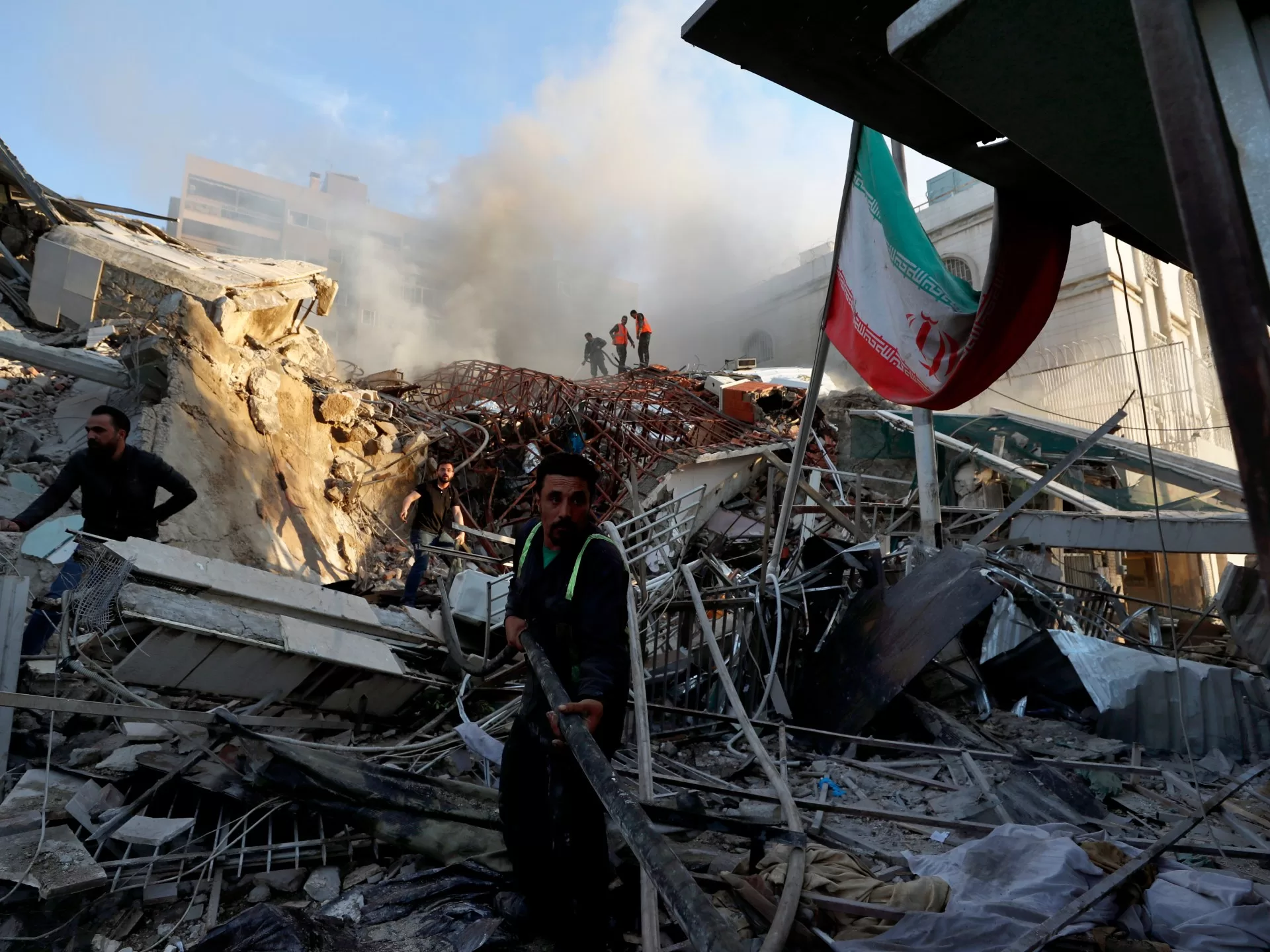The Israeli army says it ‘strengthened the alertness of combat units’ after attack on Iranian consulate in Damascus.
“We strengthened the alertness of combat units, where needed,” Israeli army spokesperson Daniel Hagari said on Thursday.
“We have reinforced the defence systems and we have aircraft prepared for defence and ready to attack in a variety of scenarios.”
The Israeli military also announced it had paused leave for combat units and blocked GPS signals in certain parts of the country, which is intended to defend against guided weapons, such as missiles or drones.
“The [army] is at war and the issue of the deployment of forces is constantly reviewed according to need,” the military said in announcing the leave suspension.
Tensions have been inflamed by Monday’s attack on the Iranian consulate in Damascus which killed at least 13 people, according to Iranian state media.
Among the dead were seven Iranian Revolutionary Guard members, two of them generals.
Israel has declined to comment on the attack, which signals an escalation of Israel’s campaign against Iran’s regional proxies that runs the risk of triggering a wider war.
Iran’s Supreme Leader Ayatollah Ali Khamenei pledged in a social media message that “with God’s help we will make the Zionists repent of their crime of aggression against the Iranian consulate in Damascus”.
The Israeli military has been assaulting Syria for more than a decade, taking advantage of the country’s chaos following the war that started in 2011.
The attacks have intensified since 2017 – almost becoming a weekly occurrence – to target the rising Iranian presence and influence in Syria after years of Tehran’s support for the rule of Syrian President Bashar al-Assad.
Monday’s killing targeted the highest-ranking member of Iran’s Islamic Revolutionary Guard Corps (IRGC) since the Quds Force commander Major General Qassem Soleimani was assassinated by the US in Iraq in January 2020, leaving Tehran under pressure to respond as it seeks to prevent the expansion of the war on Gaza across the region.
As Israel has fought in Gaza since the Hamas attack of October 7, it has also stepped up attacks against Iranian personnel and allies in Syria and Lebanon.
Israel has traded near-daily cross-border fire with Iran-backed Lebanese group Hezbollah, targeting senior members of the group and pushing its attacks further into Lebanese territory.
Hezbollah chief Hassan Nasrallah has repeatedly said that his armed group’s cross-border shelling into Israel would only end when Israel’s “aggression” on Gaza ends.
